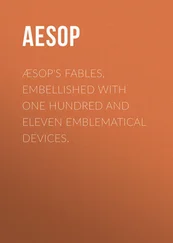Pamela Erens - Eleven Hours
Здесь есть возможность читать онлайн «Pamela Erens - Eleven Hours» весь текст электронной книги совершенно бесплатно (целиком полную версию без сокращений). В некоторых случаях можно слушать аудио, скачать через торрент в формате fb2 и присутствует краткое содержание. Год выпуска: 2016, Издательство: Tin House, Жанр: Современная проза, на английском языке. Описание произведения, (предисловие) а так же отзывы посетителей доступны на портале библиотеки ЛибКат.
- Название:Eleven Hours
- Автор:
- Издательство:Tin House
- Жанр:
- Год:2016
- ISBN:нет данных
- Рейтинг книги:4 / 5. Голосов: 1
-
Избранное:Добавить в избранное
- Отзывы:
-
Ваша оценка:
- 80
- 1
- 2
- 3
- 4
- 5
Eleven Hours: краткое содержание, описание и аннотация
Предлагаем к чтению аннотацию, описание, краткое содержание или предисловие (зависит от того, что написал сам автор книги «Eleven Hours»). Если вы не нашли необходимую информацию о книге — напишите в комментариях, мы постараемся отыскать её.
Eleven Hours
Eleven Hours — читать онлайн бесплатно полную книгу (весь текст) целиком
Ниже представлен текст книги, разбитый по страницам. Система сохранения места последней прочитанной страницы, позволяет с удобством читать онлайн бесплатно книгу «Eleven Hours», без необходимости каждый раз заново искать на чём Вы остановились. Поставьте закладку, и сможете в любой момент перейти на страницу, на которой закончили чтение.
Интервал:
Закладка:
Franckline, the anesthesiologist, the tech, the circulating nurse, and the two doctors stand by to see Lore come around. Her breathing is steady if a bit rapid. After a few minutes, her eyes open. They are bright and unfocused, and she appears to be seeing something that isn’t a blood-spattered group of olive-gowned hospital personnel.
“Soleil,” she says.
They gather in a room near the back nurses’ station, telling each other what has just happened, going through the minutes one by one. At 5:34 PM, the incision was made. At 5:39, Dr. Mankowitz requested a transfusion of O negative. The circulating nurse, Alicia, takes the record. Dr. Mankowitz questions Franckline about the course of Lore’s labor: her pains, her blood pressure, anything else that would have signaled a concealed abruption. Franckline answers as calmly as she can, shows him her log. Would he point out something she had missed, something she has done wrong? But he hands the log back to her, apparently satisfied. When he and Dr. Merchant and Marina depart, Alicia turns to Franckline. “She was gone ,” Alicia says. “Sixty, eighty seconds. Gone.”
Franckline nods silently. She is extremely tired. They — Franckline and Marina and Alicia and the tech and the two doctors, and the machines that do their bidding — they grabbed a woman held in Death’s grasp and shook and shook and forced Death to drop her. And now they are very tired. Something aches deep inside her loins. She can no longer tell if it is fatigue or something distinct from that.
By the time she changes her scrubs and updates her notes, it’s past seven, past the end of her shift. Tomorrow morning she’ll be back again. She should stop by Lore’s post-op room and check in, make sure the new nurse is up on everything. But there are a couple of things Franckline needs to do first. At the charge desk, signing herself out, she greets Billie and Cynthia, two nurses who have just come on and have heard all the evening’s news from Marina. There is a woman in room 9 who is going into transition, and Billie heads over to tend to her.
Once again, Franckline walks to the far bathroom, casting a glance at room 7 as she passes. The bed has been stripped and remade, fresh pillows laid out. Lore’s duffel is gone, presumably transferred to post-op, and the floor is still damp from mopping. In the bathroom, she shuts herself into a stall for a quick check. No blood. She puts her hands over her face and lets the shaking come on. She is sorry, so sorry — for what, she cannot say, only that things should have come out differently. Cold streams through her body and she hugs herself, teeth chattering, unable to stem the tight, jerky movements of her legs and head and arms. It was a test, she thinks, and she has failed. A sign. Her baby is in trouble and will be born, like Lore’s, blood-drenched and gray.
Franckline . She hears Bernard telling her to be reasonable, to understand, as the Americans do, that the world is full of chance, that not every event speaks with meaning. One out of every hundred pregnancies — that is not Bernard talking; it is she herself who knows the figure — one out of every hundred pregnancies results in an abruption, a quarter of those very serious, so that a nurse who has practiced for several years will most certainly come across such cases now and again.
Yes, Bernard , Franckline agrees.
And was not the baby caught up in the hands of those who cleaned it and warmed it? Did it not survive?
Yes .
She takes her time in the stall, letting the shaking slowly diminish, and when she feels ready, she splashes herself with warm water and leaves for the third floor. There, outside the NICU, she scrubs and dons surgical gloves. When she opens the heavy door she has to refocus for a minute to find the babies, so tiny are they and so overwhelmed by the masses of boxes and screens and consoles and lights and cords. The room — they call it the Big Room; babies who are moving toward discharge are transferred to one of the smaller ones beyond — is completely interior: there is no way to tell whether it’s day or night. Or, rather, perhaps, it is always night here, despite or because of the bright fluorescents everywhere. It is quieter than usual, except for the sound of the ventilators and oscillators and the intermittent beeping of the monitor alarms. Franckline doesn’t come here often; she stays carefully, as much as possible, on the side of birth that manifests in lusty cries, in pink health. The NICU babies trouble and prick her, sending her back to old memories and empty questions. (What might all of these machines and medicines have done for her tiny nameless boy? Might he be a strapping child of thirteen today, attending school, running with strong legs in the streets, bending over a plate of sos pwa ?) Besides, it is better to allow the family and the professionals to draw tight their circle of healing; she cannot be helpful here. But tonight she cannot stop herself. She must see and know. She asks for Baby Tannenbaum, and is waved over to a nurse named Barbara, with whom she is acquainted.
“Ah,” is all Franckline can say, looking down into Baby Tannenbaum’s warming bed with its low, see-through sides. There is another occupied warming bed next to her, but the rest of the row is empty, which makes it a slow week. Like many of the other babies, Baby Tannenbaum is wearing only a diaper and a cotton hat, and has EKG and heart sensors attached to her chest, with another sensor on her abdomen to keep track of her temperature. There’s an IV in one hand and another in a foot, in addition to the umbilical IV, but the thing that truly unsettles Franckline, despite her experience, is the ventilator taped against the child’s mouth all the way to the ears, obscuring her expression. The intubated babies always seem to Franckline like beings that are still living in some subterranean universe, smears of life waiting to emerge.
Compared with the child next to her, a two-pounder, Baby T looks like a pro wrestler. But what’s going on inside that brain of hers — what damage might be unspooling, or, more hopefully, healing — no one knows. Not the neonatologists, not the nurses, no one. Only time will reveal that.
“You’re taking a special interest, eh?” Barbara asks in patois. Barbara is from Martinique, and their languages are close enough that the two of them can understand each other. It’s a welcoming, intimate sound, like an offering to a guest, and it soothes some deep homesick urge in Franckline, even though she hears her home language every day in the neighborhood where she lives. It’s different, erupting here, in the middle of Manhattan, after a long working day. Yes, the language gives her that pang.
“ Ma wi —I am,” says Franckline. “She had a bad time, the mother. There’s no father in the picture, nobody.”
“Mmmh,” says Barbara, a grunt of disapproval — not of Lore, but of a fate that offers a woman on her own a damaged child.
“What do they say?” asks Franckline, meaning the neonatologist and the respiratory therapist.
This is not something she is supposed to ask, and Franckline knows that Barbara is forbidden from giving out such information. But there is no one here just now to observe their communication, and Barbara will understand that Franckline’s need to hear is pressing. She’ll know that she can trust Franckline to let it go no further. Barbara says, quietly and quickly: “She lost a great deal of blood, but her lungs are strong and she should be off the ventilator by tomorrow. We’re still waiting on most of the labs. She’ll have a brain scan in the morning.”
Franckline reaches down and places two large fingers on Baby T’s bare right side, which is less encumbered by cords. Barbara looks away, pretending to check a monitor. Baby T startles at the touch, her foot kicking up. A good sign. Her flesh is warm and very, very new. Franckline feels the rise and fall of her ventilator-controlled breath. A new creature has been deposited into life. And Franckline’s gift has held: she has lost no baby, no woman, since coming to this lucky land. Baby T kicks out her foot again, looking as if she wants to protest Franckline’s intrusion, scrunching up her eyes as if she might cry. But of course she can’t cry with the tube in her mouth, and it’s another child who begins to bawl right at this moment, the thin, insistent cry of the extremely young. Franckline turns to the sound, and as she does, it strikes her that she has touched Lore’s baby before Lore herself has done so. She feels a sting of remorse.
Читать дальшеИнтервал:
Закладка:
Похожие книги на «Eleven Hours»
Представляем Вашему вниманию похожие книги на «Eleven Hours» списком для выбора. Мы отобрали схожую по названию и смыслу литературу в надежде предоставить читателям больше вариантов отыскать новые, интересные, ещё непрочитанные произведения.
Обсуждение, отзывы о книге «Eleven Hours» и просто собственные мнения читателей. Оставьте ваши комментарии, напишите, что Вы думаете о произведении, его смысле или главных героях. Укажите что конкретно понравилось, а что нет, и почему Вы так считаете.












